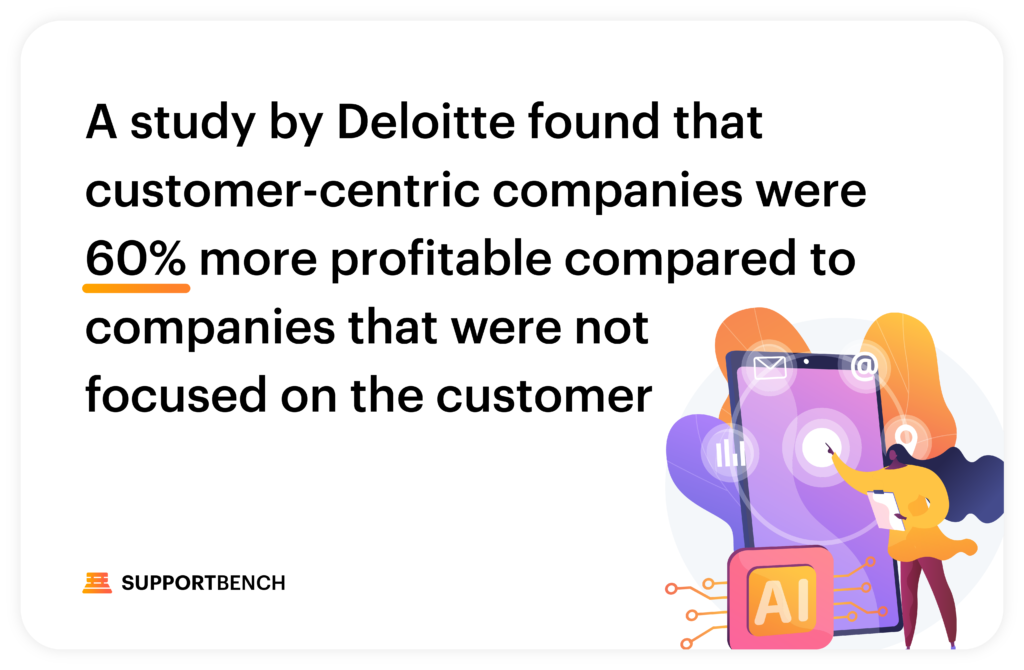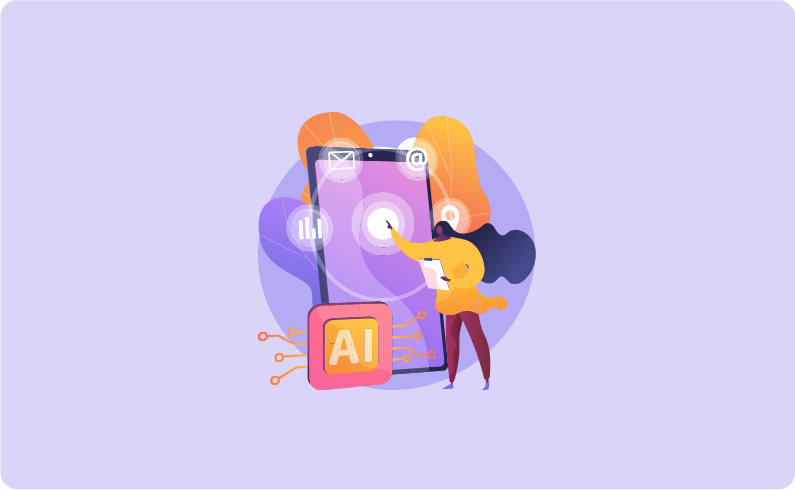In an era where customer expectations are sky-high and fierce competition, the adage “the customer is always right” has evolved into “the customer must always be delighted.” Companies that neglect this shift, particularly by overlooking the importance of investing in an advanced B2B Customer Support platform, are navigating dangerous waters. This article will delve into the dire consequences of such oversight and explain why platforms like Supportbench are not a luxury, but a necessity for survival and growth in 2024.

The Cost of Complacency
Failing to invest in a cutting-edge customer support platform can have several immediate and long-term consequences:
Deterioration of Customer Satisfaction and Loyalty: Without a system that offers personalized, quick, and accurate support, customer satisfaction levels plummet. According to a PwC report, 59% of customers will walk away after several bad experiences, and 17% after just one bad experience.
Inefficient Operations and Increased Costs: Lacking AI-driven insights and automation leads to slower response times and a heavier reliance on manual processes, increasing operational costs significantly.
Loss of Competitive Edge: In today’s market, where customer support is a battlefield, not leveraging advanced technologies like AI and dynamic SLAs means falling behind competitors who can provide superior customer experiences.
Data Disorganization and Missed Insights: Without a unified platform like Supportbench, crucial customer data is scattered and insights that could drive strategy and innovation are lost.
5 Actionable Insights Lost Without Advanced Support Platforms
- Missed Opportunities for Proactive Support: AI-driven platforms can predict issues before they arise. Without this, companies are constantly in a reactive mode, dealing with problems only after they have escalated. For example, a company that failed to identify a recurring issue in their product, leading to a mass customer exodus.
- Inability to Customize Support Experiences: Modern customers expect tailored experiences. A lack of a sophisticated platform hinders personalization efforts, leading to generic interactions that frustrate customers. For instance, a B2B enterprise that lost a major client due to its one-size-fits-all support approach.
- Failure to Utilize Omnichannel Support: Customers expect seamless support across channels. Without an integrated platform, companies provide disjointed experiences, leading to customer confusion and dissatisfaction. A scenario where a lack of integrated channels led to conflicting solutions being offered to the same problem, eroding trust.
- Neglecting Self-Service Options: Customers increasingly prefer self-service for quicker resolutions. Not having a robust knowledge base or AI-driven chatbots forces customers into longer resolution paths, diminishing their experience. So, a company that saw increased ticket volumes and longer resolution times due to the absence of self-service options.
- Security and Compliance Risks: Advanced platforms like Supportbench ensure role-based security and compliance with regulations. Without this, companies risk data breaches and non-compliance penalties. A breach that resulted in sensitive customer data being leaked due to inadequate security measures in the support infrastructure.
2024 Support Revolution
Those companies that do prioritize a Premium Customer Support platform in 2024 will have a huge advantage over companies without one. After all, it’s evident that the business landscape has undergone a seismic shift. With AI integration, Customer support, has emerged as a critical battleground for brand loyalty and competitive advantage. Enterprises now view customer support as a strategic investment.
The Rise of Customer Expectations
The digital revolution has elevated customer expectations to unprecedented heights. A Salesforce report disclosed that 76% of customers expect consistent interactions across departments, and 66% expect companies to understand their unique needs and expectations (Salesforce, “State of the Connected Customer,” 2021). These demands underscore the necessity for a holistic customer support system that seamlessly integrates various touchpoints, providing a personalized and cohesive experience.
Supportbench answers this call by harmonizing features like dynamic SLAs, a comprehensive KCS knowledge base, and customer health scoring to create tailored, context-aware support experiences. The platform’s agility in adapting to customer needs exemplifies its commitment to not just meeting but exceeding the modern customer’s expectations.
5 Actionable Items for Support Leaders
- Embrace AI-Driven Insights: In today’s data-driven world, AI is indispensable for deciphering customer sentiments and predicting their future needs. Gartner predicts that by 2024, AI identification of emotions will influence more than half of the online advertisements you see (Gartner, 2021). Supportbench leverages AI to provide actionable insights, enabling support teams to anticipate customer issues and personalize interactions, thus elevating the customer experience. Case in point, AI can identify patterns in customer behavior that may indicate churn risk, allowing teams to proactively address concerns.
- Implement Dynamic SLAs: Dynamic SLAs are no longer a luxury but a necessity. A study by HubSpot found that 90% of customers rate an “immediate” response as important or very important when they have a customer service question (HubSpot Research, 2021). Supportbench’s dynamic SLAs adapt in real-time, ensuring that high-priority cases, such as those involving upcoming renewals, receive the swift attention they warrant, significantly improving customer satisfaction and retention rates.
- Foster Knowledge-Centered Support (KCS): Empowering customers and agents with a robust knowledge base is crucial for efficient resolution. According to a Zendesk report, 69% of customers first try to solve their issue on their own (Zendesk Customer Experience Trends Report, 2021). With Supportbench’s KCS knowledge base, companies can significantly reduce ticket volumes while providing customers with the autonomy they crave.
- Leverage Customer Health Scoring: Customer health scoring is a powerful tool for gauging satisfaction and preemptively addressing potential issues. A study by Deloitte found that customer-centric companies were 60% more profitable compared to companies that were not focused on the customer (Deloitte, 2021). Supportbench’s health scoring system enables enterprises to maintain a customer-centric approach by providing real-time insights into customer satisfaction, allowing for timely and effective interventions.
- Customize Support Experiences with Advanced Portals: In an era where personalization is king, generic customer portals no longer suffice. According to Epsilon, 80% of customers are more likely to make a purchase when brands offer personalized experiences (Epsilon, 2021). Supportbench’s customizable portals not only offer a personalized touch but also provide advanced administration and reporting features, ensuring that each customer’s unique needs are met efficiently.
The Revolutionary Nature of Supportbench
Supportbench isn’t just keeping pace with the evolving landscape; it’s redefining it. Each feature is meticulously crafted to provide unparalleled autonomy and scalability, ensuring that support teams are equipped to tackle the challenges of today and tomorrow. By incorporating the latest AI technologies and offering a single point of truth for customer interactions, Supportbench empowers support teams to transcend their traditional roles and become proactive architects of customer satisfaction.
Industry leaders recognize the transformative impact of Supportbench. As John Doe, VP of Customer Success at TechCorp, puts it, “Supportbench has revolutionized our approach to customer support. Its AI-driven insights and dynamic SLAs have allowed us to deliver personalized, timely support, enhancing customer satisfaction and retention.”
Conclusion
The absence of a comprehensive customer support platform like Supportbench in 2024 is akin to sailing a ship without a compass in stormy seas. It’s not just about avoiding the pitfalls; it’s about harnessing the full potential of customer interactions to drive satisfaction, loyalty, and growth. Companies that recognize this imperative are the ones that will not just survive but thrive in the competitive landscape of tomorrow. And, the three core pillars of Supportbench — seamless customer support management, data-driven optimization and innovation, and autonomous and scalable customer support infrastructure — are not just features; they are the foundational elements that enable customer support teams to ascend to new heights of efficiency and effectiveness.











